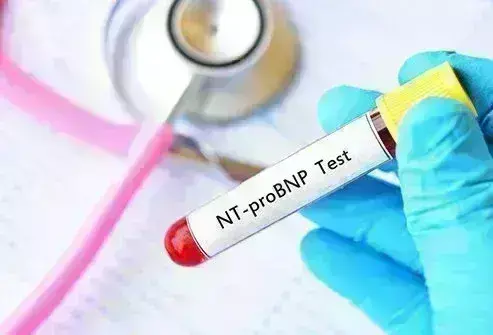- Home
- Medical news & Guidelines
- Anesthesiology
- Cardiology and CTVS
- Critical Care
- Dentistry
- Dermatology
- Diabetes and Endocrinology
- ENT
- Gastroenterology
- Medicine
- Nephrology
- Neurology
- Obstretics-Gynaecology
- Oncology
- Ophthalmology
- Orthopaedics
- Pediatrics-Neonatology
- Psychiatry
- Pulmonology
- Radiology
- Surgery
- Urology
- Laboratory Medicine
- Diet
- Nursing
- Paramedical
- Physiotherapy
- Health news
- Fact Check
- Bone Health Fact Check
- Brain Health Fact Check
- Cancer Related Fact Check
- Child Care Fact Check
- Dental and oral health fact check
- Diabetes and metabolic health fact check
- Diet and Nutrition Fact Check
- Eye and ENT Care Fact Check
- Fitness fact check
- Gut health fact check
- Heart health fact check
- Kidney health fact check
- Medical education fact check
- Men's health fact check
- Respiratory fact check
- Skin and hair care fact check
- Vaccine and Immunization fact check
- Women's health fact check
- AYUSH
- State News
- Andaman and Nicobar Islands
- Andhra Pradesh
- Arunachal Pradesh
- Assam
- Bihar
- Chandigarh
- Chattisgarh
- Dadra and Nagar Haveli
- Daman and Diu
- Delhi
- Goa
- Gujarat
- Haryana
- Himachal Pradesh
- Jammu & Kashmir
- Jharkhand
- Karnataka
- Kerala
- Ladakh
- Lakshadweep
- Madhya Pradesh
- Maharashtra
- Manipur
- Meghalaya
- Mizoram
- Nagaland
- Odisha
- Puducherry
- Punjab
- Rajasthan
- Sikkim
- Tamil Nadu
- Telangana
- Tripura
- Uttar Pradesh
- Uttrakhand
- West Bengal
- Medical Education
- Industry
NT-proBNP less than 1000 pg/mL predicts better CV outcomes Irrespective of Obesity Status

Obesity is a growing epidemic worldwide and a major risk factor for the development of heart failure (HF). N-terminal pro-B-type NP (NT-proBNP), one of the gold standard biomarkers for risk stratification, diagnosis, and prognostication in heart failure. Previous studies suggest that the presence of NT-proBNP levels were low in obese individuals.
In a recent study, researchers have found that NT‐proBNP levels are the strongest prognostic markers for adverse cardiovascular events irrespective of the obesity status. They also reported that NT‐proBNP levels less than ≤1000 pg/mL has favourable prognostic implications. The research has been published in the Journal of the American Heart Association on March 23, 2021.
The results from the multicenter, randomized GUIDE‐IT (Guiding Evidence‐Based Therapy Using Biomarker‐Intensified Treatment in HF) trial, evaluating the role of NT‐proBNP levels to guide HF management, were neutral. Secondary analyses from the GUIDE‐IT trial and prior studies indicate that those who achieved the NT‐proBNP levels of ≤1000 pg/mL had a lower risk of adverse cardiovascular events. However, the prognostic implications of having on‐treatment NT‐proBNP ≤1000 pg/mL in obese patients with HF receiving biomarker‐guided HF therapy are not known. Therefore, researchers of the University of Alabama at Birmingham conducted a study to evaluate the prognostic implications of obesity and having NT‐proBNP levels (≤1000 pg/mL) in the GUIDE‐IT trial participants.
In this post-hoc analysis, researchers assessed the risk of adverse cardiovascular events (HF hospitalization or cardiovascular mortality) using multivariable‐adjusted Cox proportional hazard models based on having NT‐proBNP ≤1000 pg/mL, stratified by obesity status. They also assessed the study outcomes based on the body mass index at baseline. The predictive ability of NT‐proBNP for adverse cardiovascular events was assessed using the likelihood ratio test.
Key findings of the study were:
- Upon analysis, the researchers found that NT‐proBNP levels were 59.0% lower among obese individuals.
- They also found a lower risk of adverse cardiovascular events in obese (hazard ratio [HR], 0.48) and nonobese (HR, 0.32) patients with HF who had NT‐proBNP levels ≤1000 pg/mL, compared with those who did not.
- They noted no interaction between obesity and having NT‐proBNP ≤1000 pg/mL on the study outcome.
- They also noted that obese patients are at higher risk of developing adverse cardiovascular events (HR, 1.39) compared with nonobese patients.
- They reported NT‐proBNP as the strongest predictor of adverse cardiovascular event risk in both obese and nonobese patients.
The authors concluded, "On‐treatment NT‐proBNP level ≤1000 pg/mL has favourable prognostic implications, irrespective of obesity status. NT‐proBNP levels were the strongest predictor of cardiovascular events in both obese and nonobese individuals in this trial."
For further information:
Medical Dialogues Bureau consists of a team of passionate medical/scientific writers, led by doctors and healthcare researchers. Our team efforts to bring you updated and timely news about the important happenings of the medical and healthcare sector. Our editorial team can be reached at editorial@medicaldialogues.in.
Dr Kamal Kant Kohli-MBBS, DTCD- a chest specialist with more than 30 years of practice and a flair for writing clinical articles, Dr Kamal Kant Kohli joined Medical Dialogues as a Chief Editor of Medical News. Besides writing articles, as an editor, he proofreads and verifies all the medical content published on Medical Dialogues including those coming from journals, studies,medical conferences,guidelines etc. Email: drkohli@medicaldialogues.in. Contact no. 011-43720751


